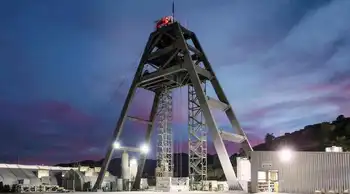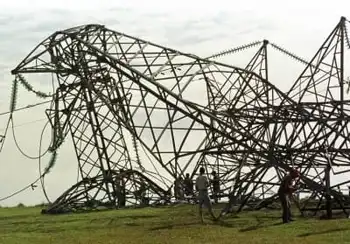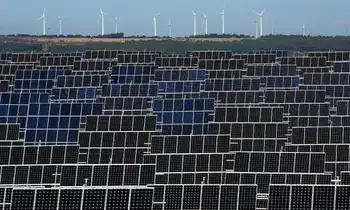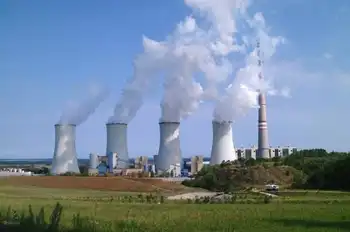Panel says Nevada nuclear dump back on
Energy Secretary Steven Chu doesn't have the authority to pull the plug on a process that Congress started when it passed the Nuclear Waste Policy Act in 1982, the NRC Atomic Safety and Licensing Board said in a 47-page order issued in Rockville, Maryland.
"Congress directed both that DOE file the application ... and that the NRC consider the application and issue a final, merits-based decision," the panel said. It said letting the department "single-handedly derail" the process would be "contrary to congressional intent."
Nevada state and Energy Department officials promised to appeal to the full five-member commission.
"The department remains confident that we have the legal authority to withdraw the application for the Yucca Mountain repository," Energy Department spokeswoman Jenni Lee said in a statement. "We believe the administrative board's decision is wrong."
The panel's ruling dealt a blow to President Obama's effort to kill the Yucca Mountain project — a campaign promise he made and a longtime goal for the Nevada congressional delegation and Senate Majority Leader Harry Reid.
"The full commission will... make the final decision," Reid, D-Nev., said in a statement. "Our country has some of the best scientific minds in the world, and I am confident they can come up with a safer solution to deal with the nation's nuclear waste."
The commission is chaired by Gregory Jaczko, a former Reid staff science adviser who has said he's convinced that used nuclear reactor fuel can be maintained safely and securely for decades where it is, at commercial power plants in 31 states.
The fate of the Yucca Mountain project is seen as key for Reid's bid for a fifth Senate term against conservative tea party-backed GOP challenger Sharron Angle. Angle, a former Nevada state lawmaker, favors using the Yucca Mountain site for nuclear waste reprocessing.
Bruce Breslow, executive director of Nevada's Agency for Nuclear Projects and the top state official working to stop the project, said the state "respects but disagrees with" the ruling, and would appeal.
For more than 25 years, the Energy Department has pursued plans to bury at least 77,000 tons of highly radioactive spent nuclear fuel in tunnels bored beneath an ancient volcanic ridge 90 miles northwest of Las Vegas. The NRC panel noted that $10 billion had been spent on the project to date. Estimates have projected the total cost at more than $90 billion over 100 years.
Opponents have raised concerns about air, water and soil contamination. Nevada state officials and attorneys argue the technology for entombing radioactive material for eons isn't fully proved, and that transporting waste from more than 100 nuclear power plants and sites around the country could be catastrophically dangerous.
Obama in January appointed former Democratic Rep. Lee Hamilton of Indiana and former National Security Adviser Brent Scowcroft to head a commission to recommend alternatives.
The states of Washington and South Carolina, plus Aiken County, S.C., the Prairie Island Indian Community of Minnesota and the National Association of Regulatory Utility Commissioners followed with challenges to the NRC.
They argue that Congress promised a solution to the storage of high-level radioactive waste at sites including the Hanford nuclear reservation in Washington state and the Savannah River site in South Carolina.
The three-member NRC legal panel held a full day of hearings in Las Vegas earlier this month before issuing its ruling.
Sen. James M. Inhofe, R-Okla., ranking member of the Senate Committee on Environment and Public Works, pointed to the politics at work in the effort to kill the Yucca Mountain project.
"DOE Secretary Chu has given no reason for the NRC to cease its safety review other than stating that Yucca Mountain is no longer 'a workable option,'" Inhofe said in a statement. "While such comments may serve a political purpose, I'm glad the NRC panel has chosen to base its decision on the law."
Related News
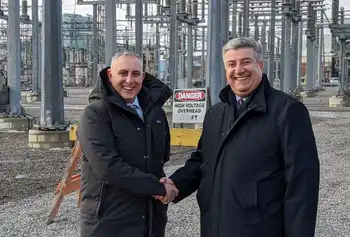
Hydro One and Alectra announce major investments to strengthen electricity infrastructure and improve local reliability in the Hamilton area
HAMILTON - Hydro One Networks Inc. (Hydro One), Ontario's largest electricity transmission and distribution company, and Alectra Utilities have announced they expect to complete approximately $250 million of work in the Hamilton area by 2022 to upgrade local electricity infrastructure and improve service reliability.
As part of these plans to strengthen the electricity grid in the Hamilton region, investments are expected to include:
installing quieter, more efficient transformers in four stations across Hamilton to assist in reducing the number of outages;
replacing protection and switching devices across the city to shorten outage restoration times;
refurbishing a power line originally installed in 1915…


